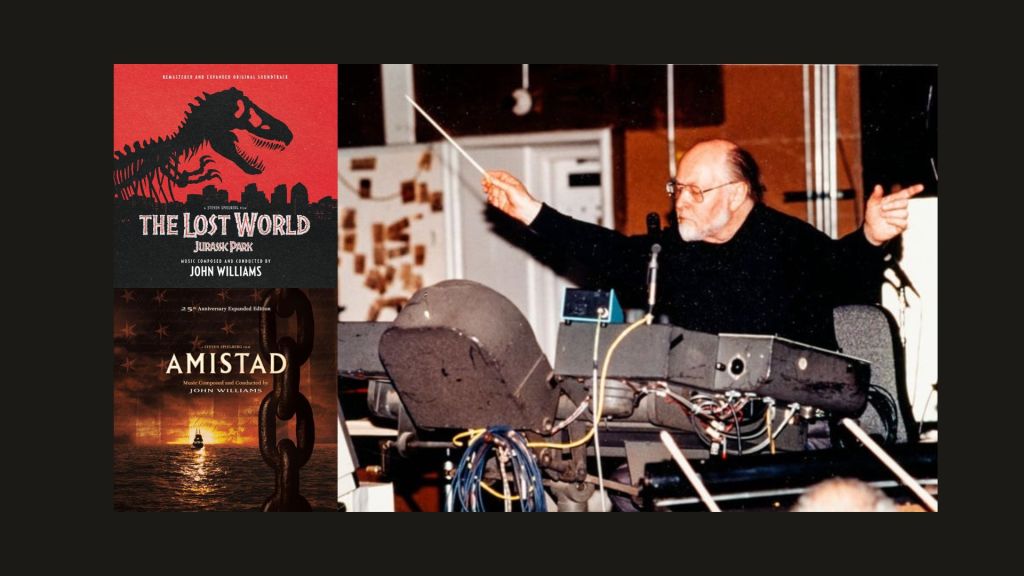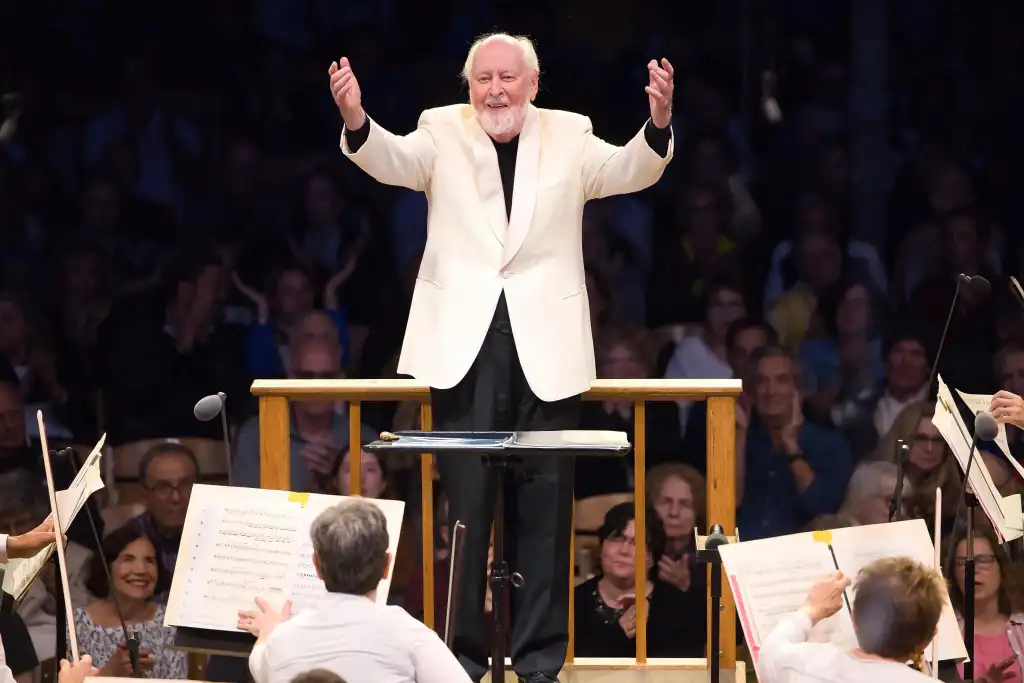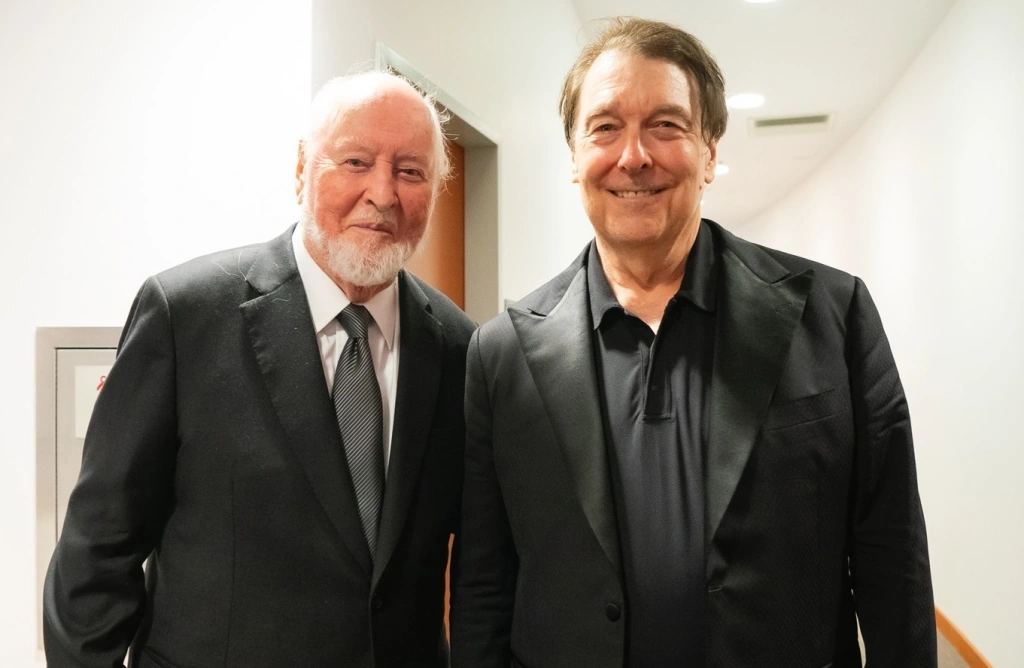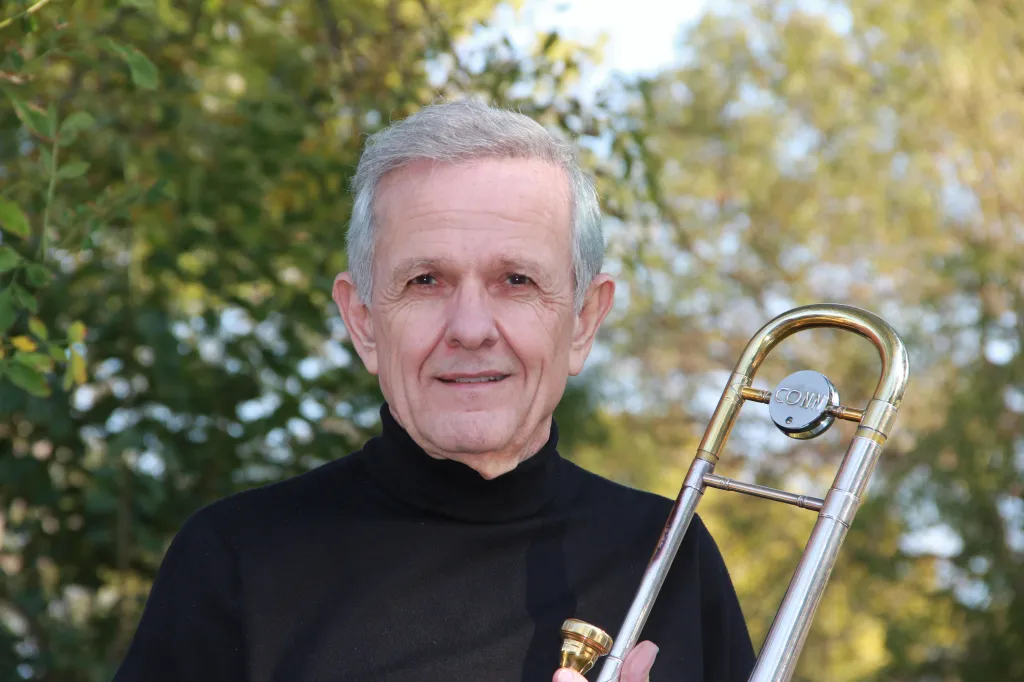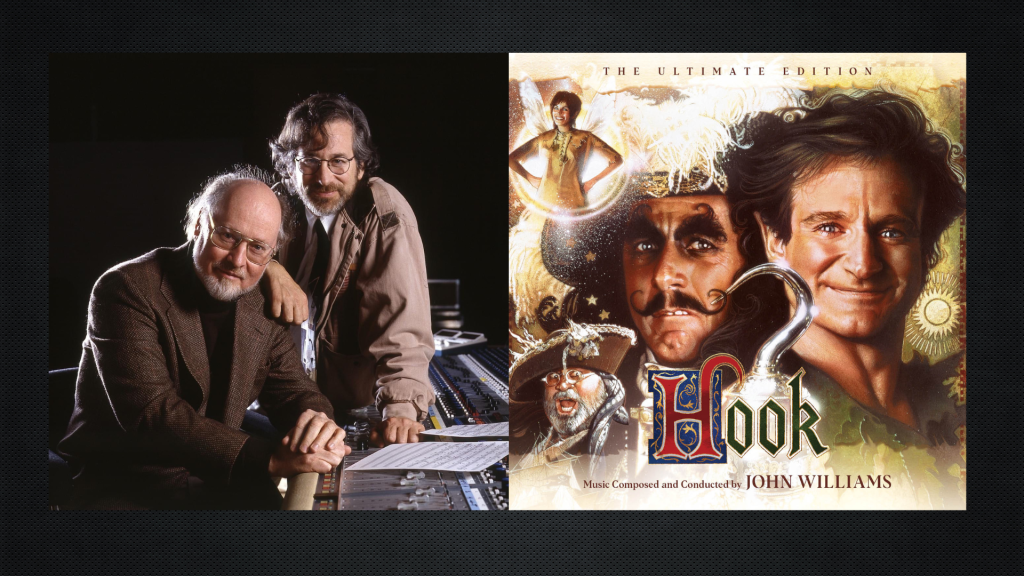Special Guest: Jason LeBlanc, project assistant
Listen on
Podbean | Apple Podcasts | Spotify | Google Podcasts | Amazon Music
The collaboration between director Steven Spielberg and composer John Williams continues to be one of the main subjects of the activities of The Legacy of John Williams. In the last few months, fans of the Maestro have been treated with two more remastered and expanded releases from the catalogue of the historic Spielberg/Williams partnership, courtesy of specialty soundtrack label La-La Land Records: The Lost World: Jurassic Park and Amistad.
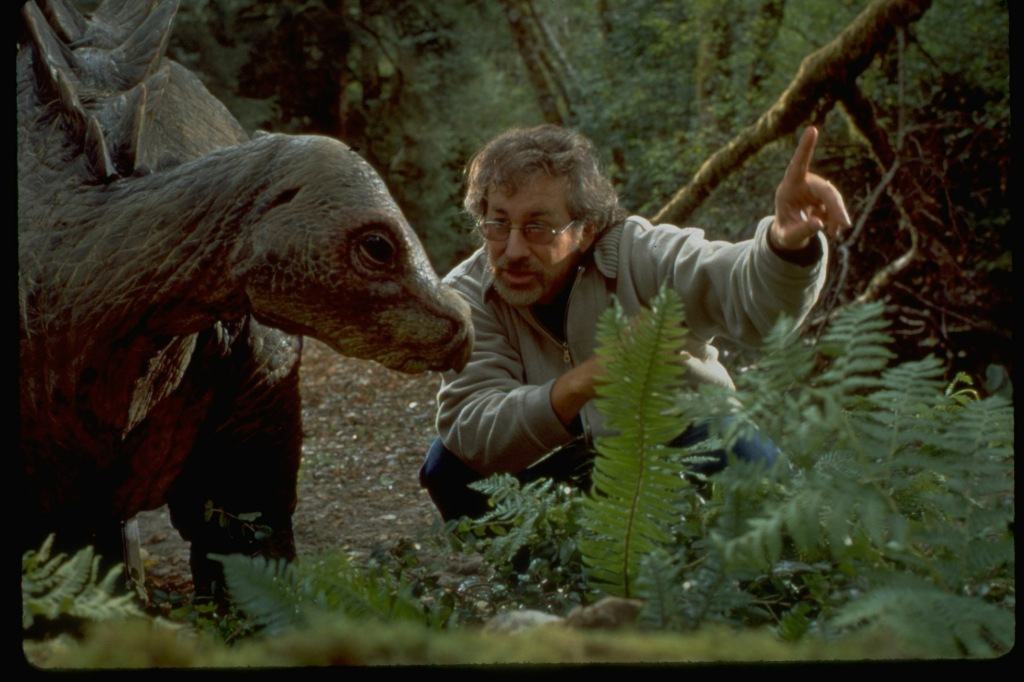
The Lost World: Jurassic Park (1997) is the sequel to the 1993 dinosaur blockbuster that shattered and excited moviegoers all around the world. Based on the sequel novel penned again by Michael Crichton, the film is a roaring adventure that takes the concept of the original movie and bring it into a new, darker environment, putting the characters against prehistoric creatures that this time are roaming without restrictions across a different island west of Costa Rica. Mathematician Ian Malcom (Jeff Goldblum) is the only returning character from the previous film (together with a brief cameo by Richard Attenborough reprising the role of visionary entrepeneur John Hammond) and this time he’s the leader of a mission which will bring him together with his girlfriend Sarah Harding (Julianne Moore), equipment specialist and engineer Eddie Carr (Richard Schiff), photodocumentarian and environmentalist Nick Van Owen (Vince Vaughn). The team will soon find itself pitted against Hammond’s nephew Peter Ludlow (Arliss Howard), who is leading a band of mercenarians in the hope of taming dinosaurs and bring the original dream of his uncle to life once again, thus creating a competition between the two factions. “It’s hunters vs. gatherers,” said Spielberg about the film at the time of its release, enhancing the more pronounced environmentalist subtext of the film. The director was coming from a four-year hiatus after the success and the accolades of Schindler’s List and he returned behind the camera with something more lighthearted and full of fun as the first project after that life-changing, career-turning experience.
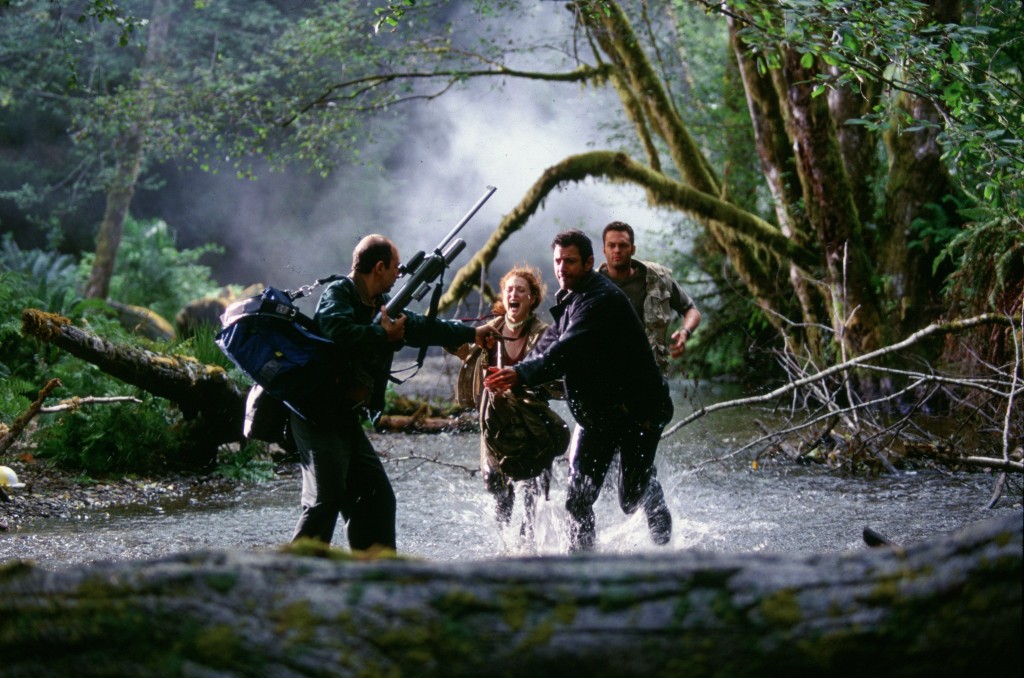
Nonetheless, The Lost World presents a much darker soul than its predecessor. Gone is the sense of wonder and the feeling of a thrilling theme park ride that distinguished the original Jurassic Park film, replaced by large doses of horror and tension that bring The Lost World very close to the classic monster movies of the past. Merian C. Cooper’s and Ernest B. Schoedsack’s iconic King Kong (1933) is referenced several times throughout the film, as are classic Ray Harryhausen movies like Mysterious Island and One Million Years B.C., while the final act of the film, which brings the Tyrannosaurus Rex into mainland in San Diego, is a rather clear homage to the Godzilla films.
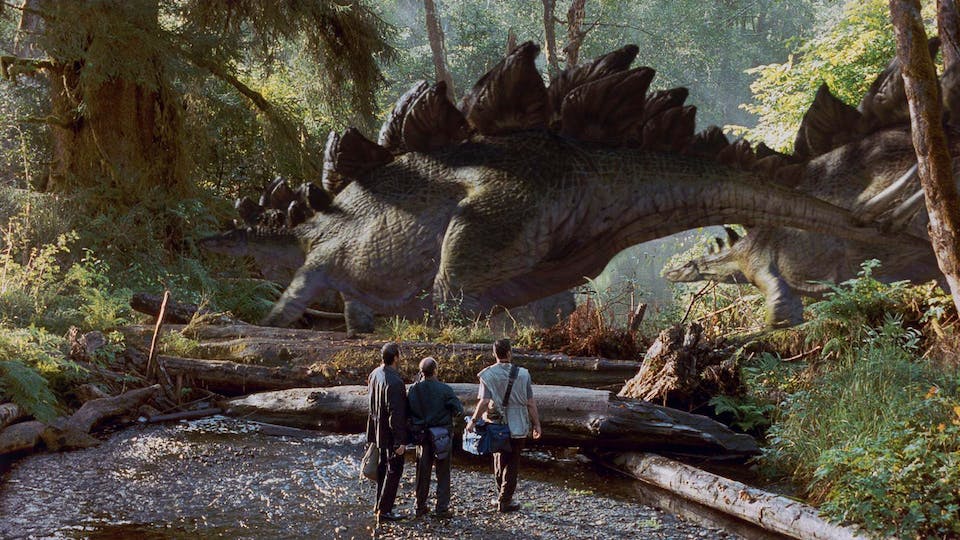
John Williams‘ score follows the same trajectory and it’s as far removed from the music of the previous Jurassic Park adventure as it can possibly be. The now-classic Jurassic Park themes are virtually jettisoned (save for a few, very brief appearances) in favour of a new gripping main theme built on block chords and irregular rhythmic patterns, signaling the audience that they are going to see a much more unpredictable and savage adventure than the predecessor. The Lost World gives Williams the chance of going truly “wild” with a sophisticated score that includes extensive writing for the percussion section (including exotic instruments like tablas, congas and bongos) playing “jungle” grooves and rhythms, especially in the action sequences, where the composer pulls out all the stops and delivers some of the most aggressive and nailbiting cues in his entire repertory.
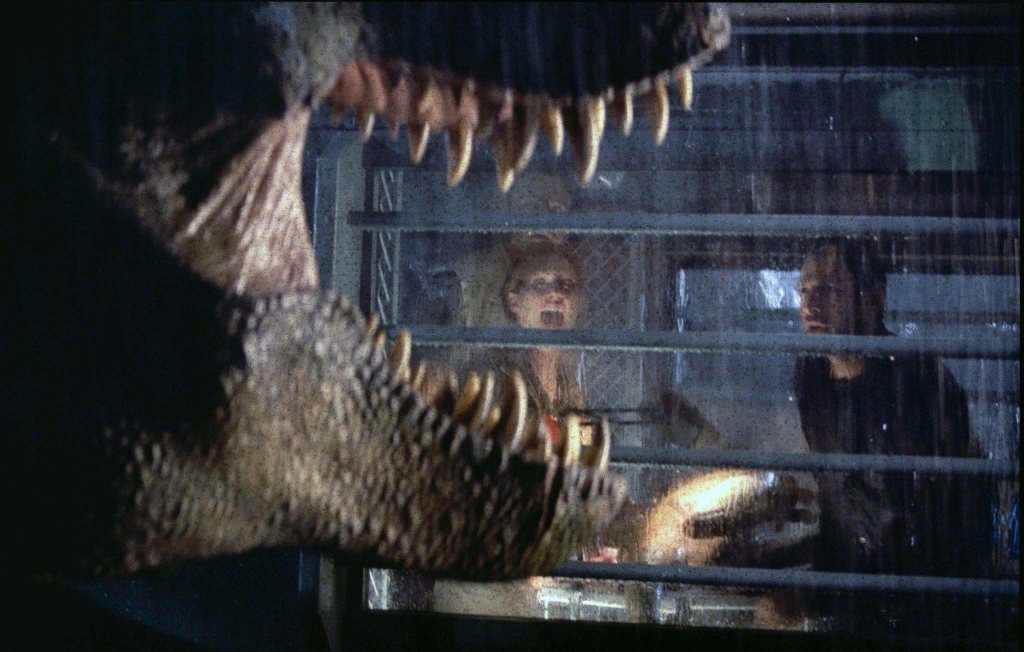
The score also features a lot of aleatoric and non-tonal writing (especially the cues accompanying the pesky little “compy” dinosaurs) in which the woodwind and brass sections are required virtuosic playing; and on top of that, Williams adds layers of menacing electronic sounds to enhance the much darker, almost horrific feeling of many moments in the film, as exemplified by the creepy four-note “island’s voice” motif (a signal that the animals has risen to a dominant status, as Matessino notes, opposed to the descending four-note “carnivore” motif of the first film) that returns throughout the score in many different permutations. All of these qualities gives Williams’ The Lost World a very unique and distinct personality, a work like nothing else in the Maestro’s catalogue before or since.
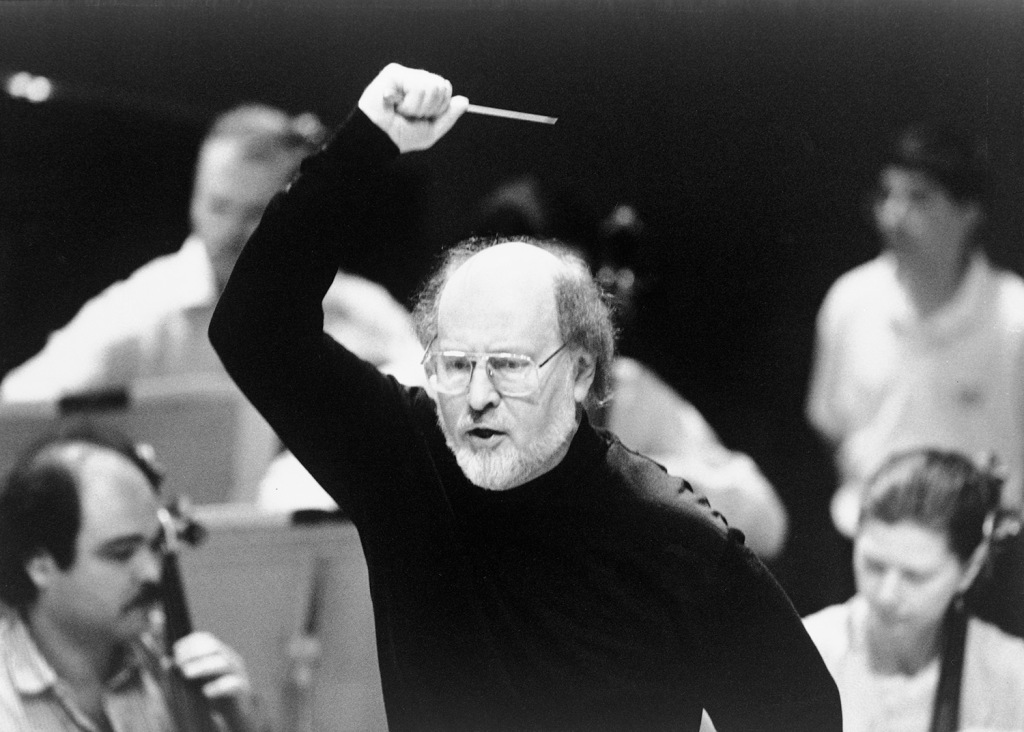
La-La Land Records’ remastered and expanded 2-CD edition presents the entirety of John Williams’ score in chronological order, following the same program of the 2016 expanded edition released as part of the John Williams Jurassic Park Soundtrack Collection 4-disc set (now long out of print), but adding four previously unreleased bonus tracks which present fascinating early alternate readings of some of the major action cues (“On the Glass,” “Rescuing Sarah” and “The Raptors Appear”), plus the film version of the riproaring “Ripples” sequence. Producer Mike Matessino created a new master out of the same source material used for the 2016 release, adding slight, but welcome improvements to the overall sonic aspect, and thus giving John Williams fans the chance to appreciate one of the Maestro’s most peculiar score.
“All of John’s work is equally blessed with genius, but when I compare the two Jurassic Park scores, I prefer The Lost World because is much more complicated musically than the first one.”
Steven Spielberg
Amistad was the second Steven Spielberg film released in 1997 and presents the more serious side of the director. The film is based on the events in 1839 aboard the Spanish slave ship La Amistad, during which Mende tribesmen abducted for the slave trade managed to gain control of their captors’ ship off the coast of Cuba, and the international legal battle that followed their capture by the Washington, a U.S. revenue cutter. The case was ultimately resolved by the U.S. Supreme Court in 1841.
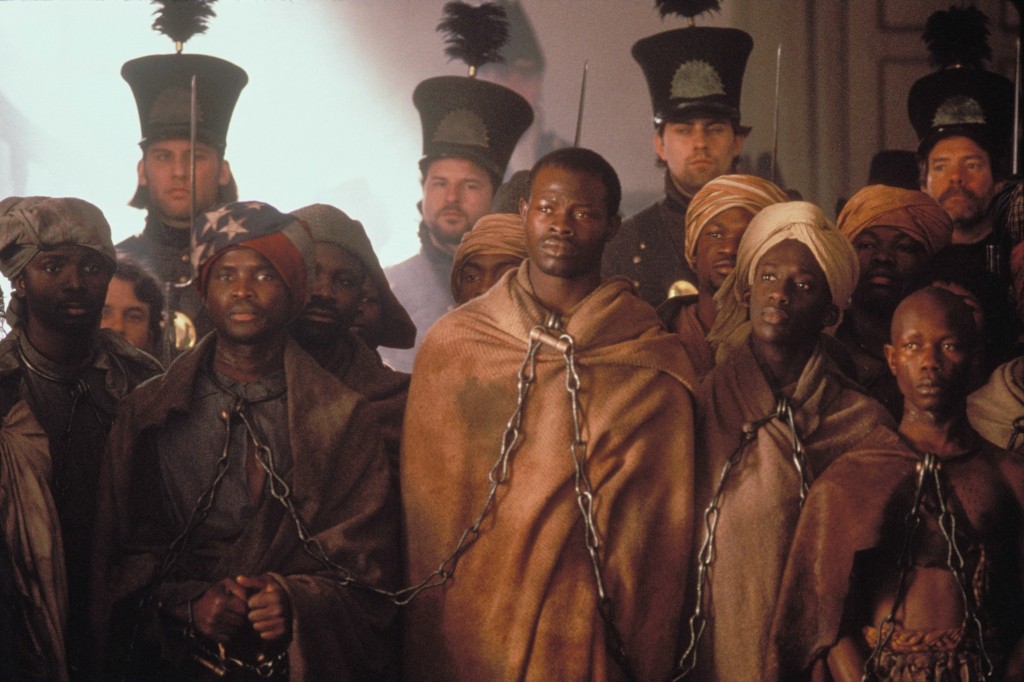
The film features an all-star cast including Morgan Freeman, Anthony Hopkins, Matthew McConaughey, Pete Postlethwaithe, Nigel Hawthorne and then-newcomer Djimon Hounsou in the breakout as the leader of the Mende revolt, Cinqué. Written by David Franzoni and Steven Zaillian, Amistad is a dramatically gripping story that brings the director back to crucial and harrowing historical events that will become a more and more prominent recurring theme in his filmography. Spielberg finds the humanity and the compassion among the horror and the pain of this harrowing tale, bringing the experience of the African prisoners akin to the one of the persecuted Jews depicted in Schindler’s List.
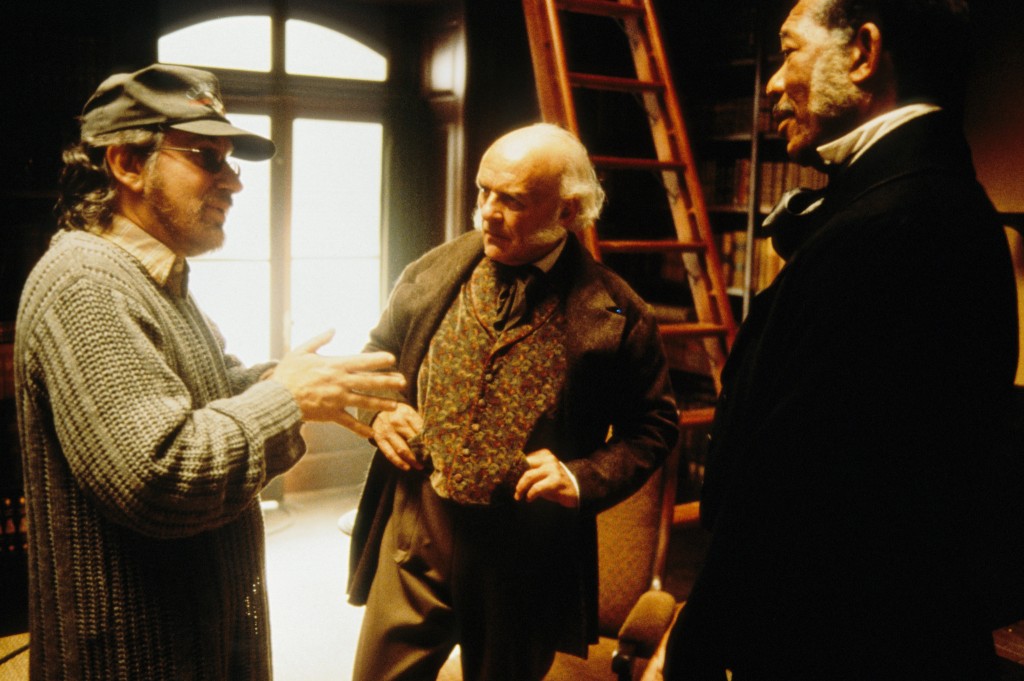
The music composed by John Williams enhances the humanist aspect of the story, accompanying the film with a profoundly moving score that is also one of the most ambitious ever composed by the Maestro in terms of size, scope and duration. Williams addresses all the components of the story with precise musical counterparts: the African element is distinguished with writing for ethnic woodwinds and percussions, to which the composer often adds vocal solos (by mezzosoprano Pamela Dillard) and choral writing for a large ensemble; the American element, and specifically the role of President John Quincy Adams, is portrayed with wholesome Americana pastoral writing featuring solos for trumpet (by Tim Morrison), French Horn (Jim Thatcher) and flute (Jim Walker).
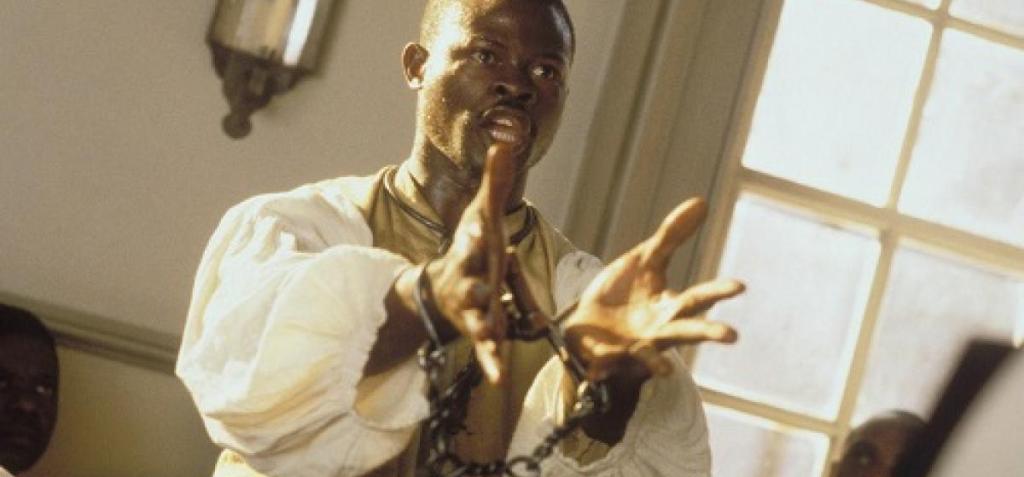
Williams writes specific themes for the main characters of the story. Cinqué is accompanied by a mournful, cantilena-like melody, while John Quincy Adams is depicted with an inspired reverential hymn-like theme. There is also an African-tinged theme for moments of communications between Cinqué and his legal team, as if to depict a “meeting of the minds”. The composer brings these various disparate elements together as the story progresses to its powerful resolution with effortless grace, remarking the beautiful commonalities between two different cultures and the overall running theme of “calling the wisdom of ancestors” at the core of the climax.
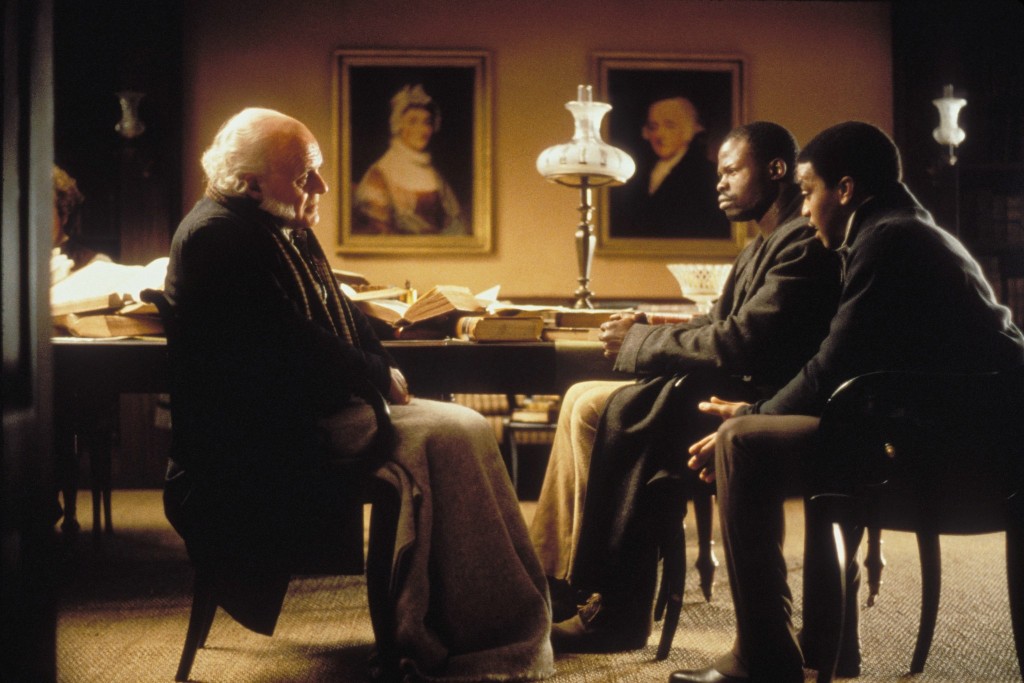
The sense of closure and joyful hope is certainly depicted in the score’s true piéce de resistance, the choral song “Dry Your Tears, Afrika,” the lyrics of which are based on a poem by French writer Bernard Dadié (translated into the Mende language) and used by Williams as the foundation of his jubilant composition, which features adult and children’s choirs, an extended percussion section and the symphony orchestra in its full forces. The piece found also a life into the concert hall, as it continues to be widely performed by orchestras and choir ensembles around the world. The composer also showed a great sense of affection for the piece, programming it in his concerts whenever he had choir available and also newly recording it in 2017 for the Sony Classical retrospective compilation The Spielberg/Williams Collaboration Volume 3.
La-La Land Records’ 2-CD expanded edition released in December 2022 presents the John Williams’ score in chronological order, adding an astonishing amount of previously unreleased material to the already generous 50-minute 1997 original soundtrack album. The additions reveals an ambitious and varied score like no other in the catalogue of the composer, showing also a beautiful sense of scope and accomplishment to the overall musical narrative. Producer Mike Matessino has remastered and assembled the release, giving new exceptional clarity to the spectacular recording by engineer Shawn Murphy. This new edition also presents a staggering amount of alternate and unused cues, including material completely different than what ended up being used in the film, thus revealing the gripping creative process of Steven Spielberg and John Williams. For these an many other reasons, Amistad is a work that needs to be fully rediscovered and newly appreciated.
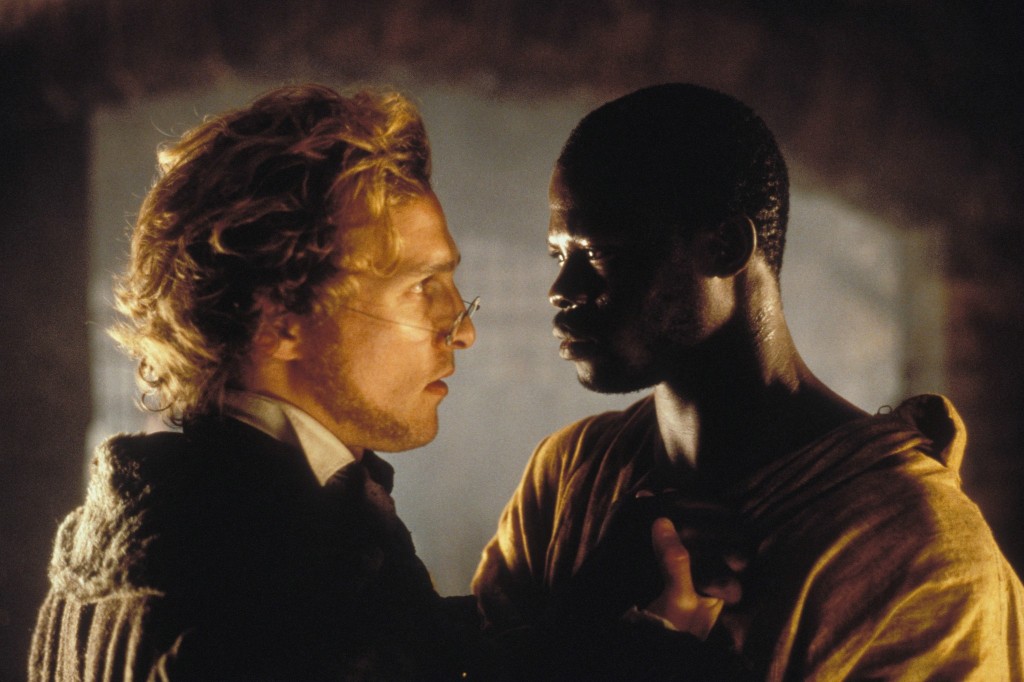
In this episode, Mike Matessino returns to The Legacy of John Williams podcast to discuss these two releases, shedding light on his restoration work on both these seminal scores, also offering his insightful comments on how they sits within John Williams’s filmography. Project assistant Jason LeBlanc joins the episode as a special guest to further illuminate on the process of restoring these two releases and explaining his role assisting Matessino during their production.
“The outstanding virtue of John Williams‘ gifts has always been John’s selfless ability to create unprecedented sounds. Like the great character actors John Barrymore, Paul Muni and Dustin Hoffman, who would never impose a single personality on multiple roles, John Williams has the gift to become any character necessary to retell with music the story of the film he is working on.“
Steven Spielberg
Amistad 25th Anniversary Remastered and Expanded 2-CD Limited Edition
https://lalalandrecords.com/amistad-25th-anniversary-expanded-limited-edition-2-cd-set/
The Lost World: Jurassic Park Remastered and Expanded 2-CD Limited Edition
https://lalalandrecords.com/the-lost-world-jurassic-park-remastered-expanded/
Jason LeBlanc, Project Assistant on The Lost World and Amistad
Jason LeBlanc is a software engineer who developed a love of cinema at a young age, which soon led to a love of film music as well, primarily thanks to the music of John Williams. In college, he began participating in online film score communities, eventually publishing interview articles with soundtrack producer Mike Matessino and CineConcerts conductor Justin Freer. In 2016, he began acting as a consultant on various John WIlliams expanded albums, starting with La La Land Records’ E.T. The Extra-Terrestrial, Close Encounters of the Third Kind, and Saving Private Ryan, and Varèse Sarabande‘s The Cowboys and Dracula. This led to becoming a project assistant on La-La Land’s Schindler’s List – 25th Anniversary Soundtrack and Harry Potter – The John Williams Soundtrack Collection. Subsequent consulting projects include War of the Worlds, The Eiger Sanction, and SpaceCamp released by Intrada Records as well as Minority Report, Far and Away, Always, Fiddler on the Roof, and Sabrina from La-La Land. He recently provided project assistance on La La Land’s expanded reissues of Jurassic Park and The Lost World, and their 25th Anniversary Expanded Edition of Amistad, for which he also contributed liner notes.
